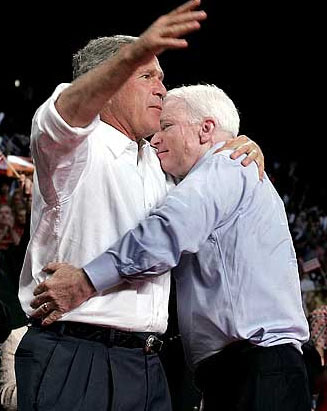I apologise for the hiatus between this and my last 700 MHz Auction update, but with 36,419 bids over 261 rounds, analysing the data set is taking a bit of time.
Among the several controversies arising the from now-completed auction has been ATT’s claim that bidders were deterred from bidding on C Block because of the open access rules imposed on the block. I can say with confidence that this is a bald-faced lie.
Twenty-six companies bid on C Block spectrum: Alltel Corporation, AST Telecom, LLC, AT&T Mobility Spectrum, LLC, Bluewater Wireless, L.P., Cellco Partnership d/b/a Verizon Wireless, Cellular South Licenses, Inc., CHEVRON USA INC., Choice Phone LLC, Club 42 CM Limited Partnership, Copper Valley Wireless, Inc., Cox Wireless, Inc., Cricket Licensee 2007, LLC, Google Airwaves Inc., King Street Wireless, L.P., Thomas K. Kurian, MetroPCS 700 MHz, LLC, NatTel, LLC, PTI Pacifica, Inc., Pulse Mobile LLC, QUALCOMM Incorporated, SAL Spectrum, LLC, SeaBytes, L.L.C., Small Ventures USA, L.P., Triad 700, LLC, Vulcan Spectrum LLC, and Xanadoo 700 MHz DE, LLC.
Note that the lying buggers at ATT bid on REAGs 2 and 4. They were deterred, but only by Verizon’s deeper pockets.
The interesting dynamic in C Block is the effect of combinatorial bidding on the outcome. Under the combinatorial bidding rules three packages of REAGs were available (the 50 state package, the Atlantic package, and the Pacific package) as well as the individual REAGs. The rules provided that so long as the bid on a package exceeded the total amount of the bids on all the individual REAGs in that package, the package bidder would win (assuming that the package bid reached the reserve price). If the total amount bid on the individual REAGs exceeded the package bid in a round, then the package was “broken” and the package bidder wouldn’t be required to take any REAGs if it couldn’t have the whole package (this was to prevent a bidder who wanted a national footprint from getting stuck with less if another bidder outbid on one or two crucial components of the package).
Echostar was a strong proponent of combinatorial bidding, insisting that they wouldn’t show up and bid if the C Block did have a combinatorial bidding rule. Oddly enough, they got the rule and then their bidding entity, Frontier Wireless, didn’t even show in C Block bidding (they bid mainly in E Block without combinatorial bidding). But what they inadvertently did was screw at least one major bidder with the combinatorial bidding rules they insisted on.
More below…
Continue reading





